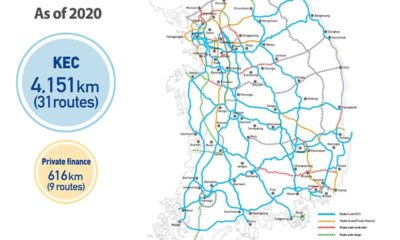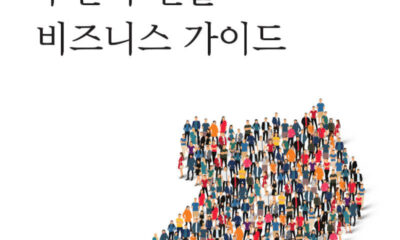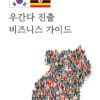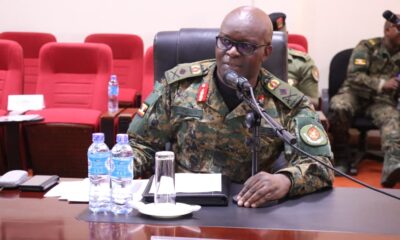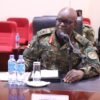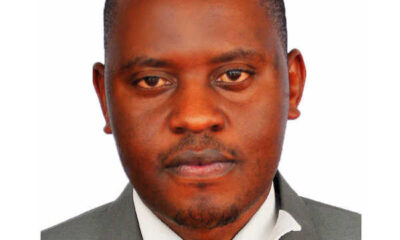News
S.Korea donates 5000 tones of rice, cash for refugees & Ugandans hit by locusts
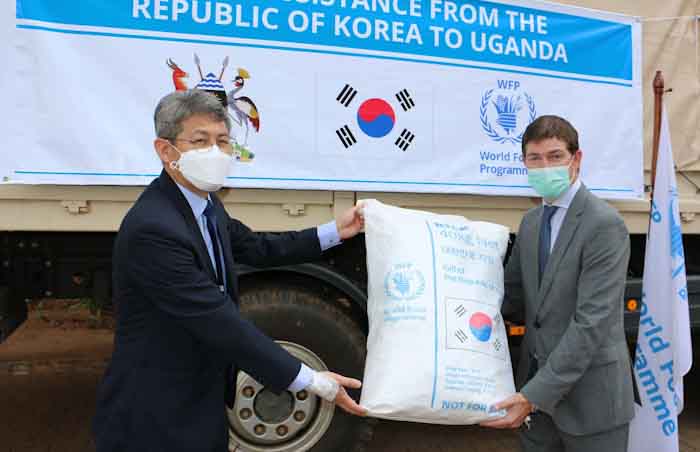
Ambassador Byung-Kyoo , left in a symbolic handover over of the relief food to WFP’s Ryan Anderson
The United Nations World Food Programme (WFP) has today September 21, received 5,000 metric tons of rice and US$300,000 in cash from the Republic of Korea (also known as South Korea), to provide much-needed relief assistance to 781,000 people including refugees and Ugandans threatened by locusts.
WFP Officer in Charge Ryan Anderson, said: “WFP is extremely grateful for the continued generosity of the Republic of Korea since 2018 and its appreciation of the immense humanitarian needs in Uganda, which were suddenly made even more complicated by COVID-19.”
Anderson added: “This contribution of 5,000 metric tons of rice found us at a crossroads when we were considering whether to make deeper ration cuts for refugees because of a shortage of funding, even as we have evidence that they already face high food insecurity.”
Combined with other contributions, the rice may allow WFP to maintain rations for 1.26 million refugees for two months at 70 percent of a full ration.
Valued at US$4.3 million, it will also meet cereal needs of 614,000 refugees in seven settlements towards the end of the year.
The additional US$300,000 in cash will enable WFP to meet the relief needs of 167,000 people in the northeastern region of Karamoja, which is the most food-insecure region in the country and is threatened by a combination of malnutrition among its residents, locusts, floods and animal diseases.
South Korea’s Ambassador to Uganda Ha Byung-Kyoo reiterated his country’s commitment to support vulnerable groups in Uganda.
Ambassador Byung-Kyoo said: “The Republic of Korea is committed to supporting vulnerable groups of people in Uganda, especially refugees fleeing conflict and nationals faced by chronic food shortages and malnutrition.”
“We also are very pleased to continue making contributions of rice, which we have heard is appreciated by the refugees and contributes to much needed dietary diversity,” he added.
In a statement to the media, WFP Uganda says it was forced to reduce rations for refugees in April to 70 percent of a full ration because of funding shortages.
“The economic pressures that COVID-19 has brought on donor capitals has further complicated funding to feed refugees. WFP is putting in place safety measures in 13 refugee settlements to prevent the spread of COVID-19 during food and cash distributions,” said the UN food relief agency.
The Republic of Korea has contributed rice to WFP in Uganda annually since 2018 in support of 1.43 million refugees – the highest number of refugees hosted by any country in Africa.
WFP says the US$300,000 contribution will be used to it’s assistance programs in Karamoja.
“Even though families in the region were able to harvest some crops in August, despite repeated sightings of locusts between February and July, the very presence of the pests in the region threatens both agriculture and vegetation needed for animals. Relief food helps to cushion families as the government and UN partners work to control the impact of locusts,” said the UN agency.
Comments



